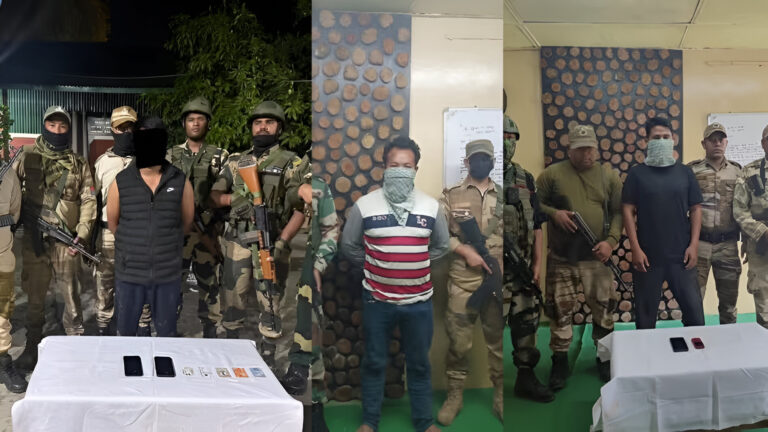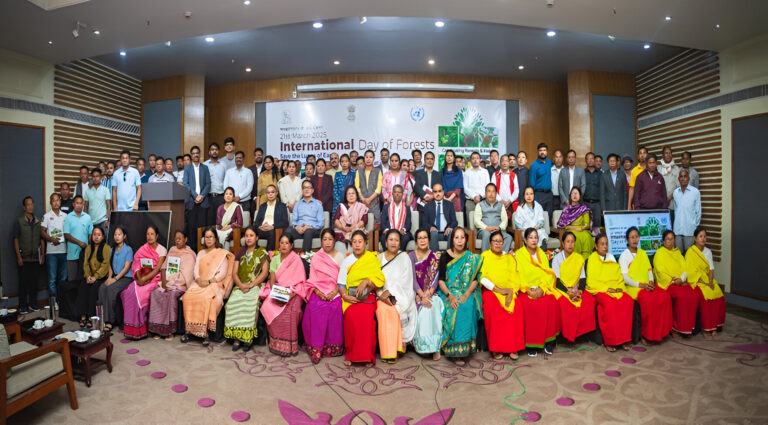The Rising Conflict Over Poppy Cultivation in Manipur: A Detailed Insight
Summary
Tensions have flared in Manipur as armed poppy cultivators clashed with law enforcement and local volunteers in Makhan Village. This confrontation highlights the broader challenges faced by the state in its aggressive crackdown on illegal poppy cultivation. The government, spearheaded by Chief Minister N. Biren Singh’s “War on Drugs,” has intensified efforts to dismantle large-scale poppy plantations that fuel the drug trade. However, these actions have been met with resistance, underscoring the socio-political complexities surrounding the issue.
Full Article
Introduction: The “War on Drugs” in Manipur
Manipur, a northeastern state of India, has become a key battleground in the fight against drug trafficking and illegal poppy cultivation. The state’s “War on Drugs” campaign has uncovered staggering amounts of illicit activity, with over 15,000 acres of poppy fields destroyed and thousands of arrests made since 2017. Yet, the recent violent confrontations between armed cultivators, police, and local volunteers reveal the entrenched challenges in addressing this crisis.
What Happened in Makhan Village?
The latest incident unfolded in Makhan Village, where security forces and local volunteers encountered resistance from armed cultivators while attempting to dismantle poppy fields. Reports suggest these cultivators, determined to protect their livelihoods, posed a significant threat during the operation. The situation escalated, leading to tense standoffs and highlighting the risks involved for law enforcement and community volunteers.
Why Is Poppy Cultivation Such a Controversial Issue?
At the heart of this conflict lies the intersection of economic necessity and law enforcement. Poppy cultivation, although illegal, provides a lucrative income for many communities, particularly in remote and economically disadvantaged areas. The crop’s link to narcotics production has prompted stringent government crackdowns, yet many farmers view it as their only means of survival.
Moreover, the geographical and cultural diversity of Manipur adds layers of complexity. The state’s rugged terrain and porous international borders facilitate the drug trade, while socio-political tensions among ethnic groups further complicate enforcement efforts.
Government’s Efforts and Achievements
Manipur’s government has taken aggressive steps to combat the drug menace:
- Massive Seizures and Arrests: Over 2,500 arrests related to narcotics have been made since 2017, spanning various communities.
- Destruction of Poppy Fields: Authorities have eradicated over 15,000 acres of poppy plantations, including recent operations in districts like Ukhrul and Tengnoupal
- Community Involvement: Local volunteers and civil society organizations have joined hands with law enforcement, despite facing significant risks.
These efforts, however, have not been without controversy. Critics argue that the crackdown disproportionately affects marginalized communities and lacks viable alternatives for those dependent on poppy cultivation.
The Role of Local Communities
Local volunteers have played a crucial role in the “War on Drugs,” often acting as intermediaries between the state and affected communities. In the Makhan Village incident, their involvement underscores the importance of community engagement in tackling such entrenched issues. However, the risks they face from armed resistance highlight the need for better support and protection.
Challenges Ahead
The path to eradicating poppy cultivation in Manipur is fraught with challenges:
- Economic Alternatives: Without sustainable livelihood options, farmers may continue to resort to illegal cultivation.
- Security Concerns: Armed resistance from cultivators and drug cartels poses a significant threat to operations.
- Cultural Sensitivities: Addressing the issue requires careful navigation of ethnic and cultural dynamics in the state.
The Bigger Picture
Manipur’s struggle is a microcosm of the global fight against drugs, where economic desperation meets law enforcement. The state’s “War on Drugs” has made significant strides, but incidents like the Makhan Village confrontation serve as reminders of the human cost involved.
Conclusion: A Call for Comprehensive Solutions
To resolve this crisis, Manipur needs a multifaceted approach that balances strict enforcement with compassion and economic support. Providing farmers with viable alternatives and fostering trust between communities and the government could pave the way for sustainable progress.
FAQs
- What is the “War on Drugs” in Manipur?
It is a state-led initiative to combat drug trafficking and illegal poppy cultivation, involving law enforcement and community efforts. - Why is poppy cultivation a problem?
Poppy plants are used to produce narcotics, contributing to the global drug trade and its associated social harms. - What happened in Makhan Village?
Armed cultivators resisted efforts by police and volunteers to destroy poppy fields, highlighting the tensions surrounding the issue. - What are the challenges of eradicating poppy cultivation?
Challenges include economic dependence on the crop, security risks, and cultural sensitivities among affected communities. - How can the government address these challenges?
By providing alternative livelihoods, ensuring fair enforcement, and fostering trust with local communities.




